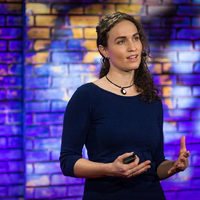Mentions
- Post
"People often lament that digital communication makes us less civil, but this is one advantage that online conversations have over in-person ones. We have a buffer of time and space between us and the people whose ideas we find so frustrating. We can use that buffer. Instead of lashing out, we can pause, breathe, change the subject or walk away, and then come back to it when we're ready."
- Post
It was a relief and a privilege to let go of the harsh judgments that instinctively ran through my mind about nearly every person I saw.
...
I can't help but see in our public discourse so many of the same destructive impulses that ruled my former church... the path [our society] has chosen looks so much like the one I walked away from four years ago. We've broken the world into us and them only emerging from our bunkers long enough to lob rhetorical grenades at the other camp.
...
At Westboro, I learned not to care how my manner of speaking affected others. I thought my rightness justified my rudeness --harsh tones, raised voices, insults, interruptions -- but that strategy is ultimately counterproductive.
- Post
"These shifts in my perspective contributed to a larger erosion of trust in my church and eventually it made it impossible for me to stay. In spite of overwhelming grief and terror, I left Westboro in 2012.
In those days, just after I left, the instinct to hide was almost paralyzing. I wanted to hide from the judgment of my family who I knew would never speak to me again - people who's thoughts and opinions meant everything to me.
...
We walked into an abyss but we were shocked to find the light and a way forward in the same communities we'd targeted for so long."
- Post
"The truth is that the care shown to me by these strangers on the internet was itself a self contradiction. It was growing evidence that people on the other side were not the demons I'd been led to believe.
...
Once I saw that we were not the ultimate arbiters of divine truth but flawed human beings, I couldn't pretend otherwise. I couldn't justify our actions, especially our cruel practice of protesting funerals and celebrating human tragedy."
- Post
"There was no confusion about our positions, but the line between friend and foe was becoming blurred. We'd started to see each other as human beings and it changed the way we spoke to one another.
...
It took time, but eventually these conversations planted seeds of doubt in me. My friends... took the time to understand Westboro's doctrines and in doing so, they were able to find inconsistencies I'd missed my entire life."
- Post
"In my home, life was framed as an epic spiritual battle between good and evil. The good was my church and its members. The evil was everyone else.
My church's antics were such that we were constantly at odds with the world and that reinforced our otherness on a daily basis."
